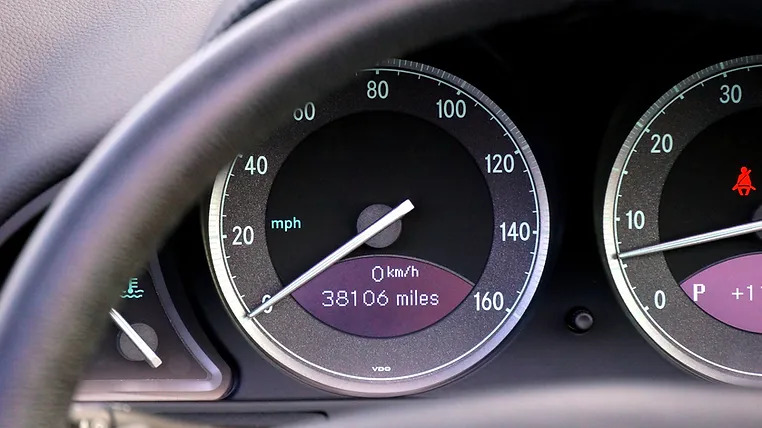Chicago and Naperville Locations
Penalties for Driving on a Revoked License

Under 625 ILCS 5/6-303, the Illinois Vehicle Code makes it an offense to drive or be in actual physical control of a motor vehicle, on a public roadway when their driver’s license, permit, or privilege to obtain a license or permit is suspended or revoked. The penalties for this offense vary depending on the reason for suspension or revocation, whether aggravating factors exist, and whether a person has prior violations for driving on a suspended or revoked license.
In the following sections, we provide a brief overview of the penalties that a person may face for driving on a suspended or revoked driver’s license. This list is not exhaustive, and it is strongly encouraged that a person speak with an Illinois license revocation attorney about their case before making any legal conclusions or decisions.
Driving on a Suspended or Revoked License: Revocation Based on DUI, Summary Suspension, and/or Leaving the Scene of an Accident Involving Injury or Death. In 6-303 cases where the basis of the license suspension or revocation is related to DUI, Summary Suspension, Leaving the Scene of an Accident involving Injury or Death, the following laws apply:
- First Conviction. When a person’s driving privileges are revoked or suspended for DUI, summary suspension, or leaving the scene of an accident involving injury or death, the person must serve 10 consecutive days in prison or complete 30 days of community service, if convicted. 6-303(c)
- Second Conviction. When a person’s driving privileges are revoked or suspended for DUI, summary suspension, or leaving the scene of an accident involving injury or death, the person can be charged with a Class 4 felony on the second violation. If convicted, they must serve 30 days imprisonment or 300 hours of community service. 6-303(d)
- Third Conviction. When a person’s driving privileges are revoked or suspended for DUI, summary suspension or leaving the scene of an accident involving injury or death, the person can be charged with a Class 4 felony on the third violation. The person must serve a minimum of 30 days imprisonment. 6-303(d-2)
- Fourth, Fifth, Sixth, Seventh, Eighth and Ninth Convictions. When a person’s driving privileges are revoked or suspended for DUI, summary suspension, or leaving the scene of an accident involving injury or death, the person can be charged with a Class 4 felony on their fourth through ninth violations. If convicted, they face a minimum term of 180 days imprisonment. 6-303(d-3)
- Tenth, Eleventh, Twelfth, Thirteenth and Fourteenth Convictions. When a person’s driving privileges are revoked or suspended for DUI, summary suspension, or leaving the scene of an accident involving injury or death, the person can be charged with a Class 3 felony, punishable by 2 to 7 years in prison, on their tenth through fourteenth violations. If convicted, they are not eligible for conditional discharge or probation. 6-303(d-4)
- Fifteen or More Convictions. When a person’s driving privileges are revoked or suspended for DUI, summary suspension, or leaving the scene of an accident involving injury or death, the person can be charged with a Class 2 felony, punishable by the enhanced sentence of 3 to 14 years in prison, on their fifteenth or subsequent violation. If convicted, they are not eligible for conditional discharge or probation. 6-303(d-5)
Driving on a Suspended or Revoked License: Reckless Homicide and Aggravated DUI involving a Fatality. In 6-303 cases where the basis of the license revocation is related to reckless homicide or an Aggravated DUI involving a fatality, the following laws may apply:
- First Conviction. If the reason for revocation is reckless homicide or an aggravated DUI that caused a death, the Driving on a License Revoked charge is a Class 4 felony. Upon conviction, a person must serve a minimum imprisonment sentence of thirty (30) consecutive days or complete 300 hours of community service. The court may give credit toward the completion of community service hours for participation in activities and treatment, as determined by court services. 6-303(b-5)
- As part of their sentence, the person will be required to undergo a professional evaluation to determine if an alcohol or drug problem exists and the extent of any potential problem. The person may be ordered to complete treatment as deemed appropriate. 6-303(a-5
- Second Conviction. A second conviction for driving on a revoked license is a Class 2 felony, punishable by 3 to 7 years, if the reason for revocation is reckless homicide or aggravated DUI where the driver was the proximate cause of a death. Upon conviction, a person is not eligible for conditional discharge or probation. A mandatory prison term should be imposed. 6-303(c-5)
- Third Conviction. A third conviction for driving on a suspended or revoked license is a Class 1 felony, punishable by 4 to 15 years in prison, if the reason for revocation is reckless homicide or aggravated DUI when the driver was the proximate cause of death. The person is not eligible for conditional discharge or probation. A mandatory term of imprisonment must be imposed, and a person’s driving privileges will be revoked for life. 6-303(d-2.5)
- Fourth or Subsequent Conviction. A fourth or subsequent conviction for driving on a suspended or revoked license is a Class 1 felony, punishable by an extended term of 4 to 30 years in prison, if the reason for revocation is reckless homicide or aggravated DUI when the driver was the proximate cause of death. A mandatory term of imprisonment must be imposed. The person is ineligible for conditional discharge or probation. 6-303(d-3.5)
Driving on a Suspended or Revoked License without Mandatory BAIID Device or Monitored Device Driving Permit (MDDP). In cases where a person drives during a suspension where they were eligible for a monitored permit, or when they drive without the interlock device after they have been issued an BAIID-required permit, the following penalties apply:
- MDDP Eligible Drivers. If a person was eligible to obtain an MDDP but is convicted of driving on a suspended license during their statutory suspension period, they are guilty of a Class 4 felony with a mandatory minimum of thirty (30) days imprisonment. 6-303(c-3)
- Mandatory Interlock Permits. If a person was issued a mandatory interlock permit but is convicted of driving on a suspended or revoked while operating a vehicle without an interlock device, they are guilty of a Class 4 felony with a mandatory minimum of thirty (30) days imprisonment. 6-303(c-4)
Driving on a Suspended or Revoked License: No Aggravating Factors. In cases where a person is suspended or revoked for a non-aggravating reason (i.e. not DUI, not reckless homicide, etc.), the following penalties apply:
- First Conviction. A first offense for driving on a revoked or suspended license, without any aggravating factors, is a Class A Misdemeanor. A person may receive supervision, conditional discharge, or probation. 6-303(a)
- Second Conviction. A second offense for driving on a revoked or suspended license, without any aggravating factors, is a Class A Misdemeanor. Upon conviction, a person faces a minimum sentence of 100 hours of community service. However, the court may give credit toward the fulfillment of community service hours for participating in activities and treatment, as determined by court services. 6-303(c-1)
- Third or Subsequent Conviction. A third or subsequent offense for driving on a revoked or suspended license, without any aggravating factors, is a Class A Misdemeanor. Upon conviction, the person faces a minimum sentence of 300 hours of community service or 30 days imprisonment. The court may give credit toward the fulfillment of community service hours for participating in activities and treatment, as determined by court services. 6-303(d-1)
- Fourth Conviction and Subsequent Offenses. On the fourth or subsequent conviction for driving on a suspended or revoked license, without any aggravating factors, the court may order seizure of the person’s license plates, as well as immobilization of the vehicle for a period to be determined by the court. 6-303(c-2)
Eligibility Extensions
In cases where a person has been convicted of driving on a suspended or revoked license, the Secretary of State will extend the person’s eligibility for driving relief. In some cases, the person’s eligibility will be extended if they were not convicted of driving on a revoked or suspended license, but instead, received a conviction on another violation that indicated they were driving during a period of suspension or revocation. The extension periods are as follows:
- Any Conviction – Driving without a Mandatory Interlock Device. If convicted of any violation indicating that a person was operating a vehicle without a BAIID device, when driving was conditioned upon use of an interlock machine, the Secretary will not issue a driver’s license to that person for an additional period of one year from the date of conviction. 6-303(b)(4)
- Any Conviction Indicating Driving During a Suspension – Extension of Original Suspension Period. If a person is convicted of any violation that indicates that they were driving during a term when their license was suspended, the Secretary of State shall extend or re-suspend (if suspension period is over) for the period of the original suspension. 6-303(b-1)
- Any Conviction Indicating Driving During a Revocation – Extension of Reinstatement Eligibility. If a person is convicted of any violation that indicates that they were driving during a term when their license was revoked, the Secretary of State shall not issue a driver’s license for one year from the date of conviction. A person can generally apply for a hardship permit during this period. 6-303(b-2)
- First Conviction – Revocation for Reckless Homicide. After receiving a report of a first conviction for persons revoked for reckless homicide or aggravated DUI (relating to a fatality), the Secretary of State shall not issue a driver’s license for an additional period of three years from the date of conviction. 6-303(b)(6)
Conclusion
A person charged with driving on a revoked or suspended license should obtain an experienced driver’s license attorney. These are criminal charges, not traffic tickets. They require an attorney to have knowledge of traffic law, penalties for driving on a revoked license, criminal defense and driver’s license reinstatement hearings.
For a free consultation on driver’s license reinstatement after a driving on suspended or revoked charge in Illinois, please do not hesitate to contact our office at (312) 761-8290 or email jennifer@wirthlaw.org.
The information on this site does not constitute legal advice. Nothing on this site creates an attorney-client relationship. If you are facing a legal issue in Illinois, we encourage you to consult with an Illinois-licensed attorney about your case.








